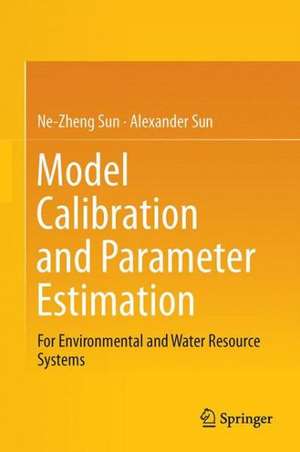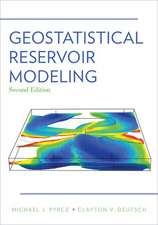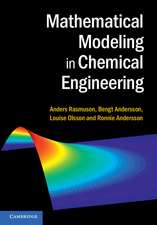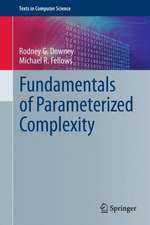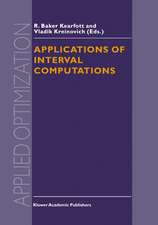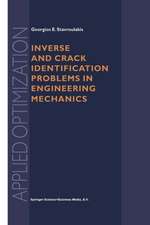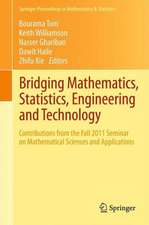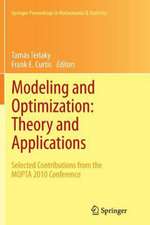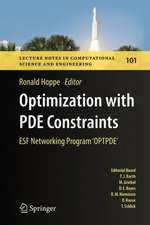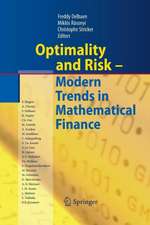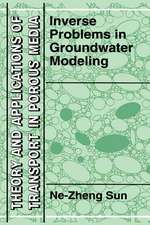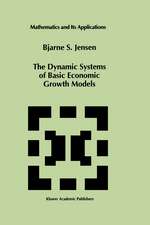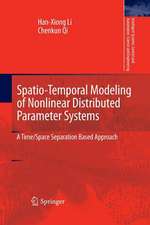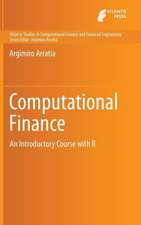Model Calibration and Parameter Estimation: For Environmental and Water Resource Systems
Autor Ne-Zheng Sun, Alexander Sunen Limba Engleză Hardback – iul 2015
| Toate formatele și edițiile | Preț | Express |
|---|---|---|
| Paperback (1) | 961.23 lei 6-8 săpt. | |
| Springer – 21 oct 2016 | 961.23 lei 6-8 săpt. | |
| Hardback (1) | 967.56 lei 6-8 săpt. | |
| Springer – iul 2015 | 967.56 lei 6-8 săpt. |
Preț: 967.56 lei
Preț vechi: 1179.96 lei
-18% Nou
Puncte Express: 1451
Preț estimativ în valută:
185.15€ • 197.98$ • 154.37£
185.15€ • 197.98$ • 154.37£
Carte tipărită la comandă
Livrare economică 17 aprilie-01 mai
Preluare comenzi: 021 569.72.76
Specificații
ISBN-13: 9781493923229
ISBN-10: 1493923226
Pagini: 705
Ilustrații: XXVIII, 621 p. 123 illus., 107 illus. in color.
Dimensiuni: 155 x 235 x 40 mm
Greutate: 1.08 kg
Ediția:2015
Editura: Springer
Colecția Springer
Locul publicării:New York, NY, United States
ISBN-10: 1493923226
Pagini: 705
Ilustrații: XXVIII, 621 p. 123 illus., 107 illus. in color.
Dimensiuni: 155 x 235 x 40 mm
Greutate: 1.08 kg
Ediția:2015
Editura: Springer
Colecția Springer
Locul publicării:New York, NY, United States
Public țintă
ResearchCuprins
Introduction.- The Classical Inverse Problem.- The Gauss-Newton Method.- Multiobjective Inversion and Regularization.- Statistical Methods for Parameter Estimation.- Model Differentiation.- Model Dimension Reduction.- Development of Data-Driven Models.- Data Assimilation for Inversion.- Model Uncertainty Quantification.- Optimal Experimental Design.- Goal-Oriented Modeling.
Notă biografică
Ne-Zheng Sun, Adjunct Professor, Civil & Environmental Engineering Department, University of California at Los Angles, USA Alexander Y. Sun, Research Scientist, Bureau of Economic Geology, Jackson School of Geosciences, University of Texas at Austin, USA
Textul de pe ultima copertă
This three-part book provides a comprehensive and systematic introduction to the development of useful models for complex systems. Part 1 covers the classical inverse problem for parameter estimation in both deterministic and statistical frameworks, Part 2 is dedicated to system identification, hyperparameter estimation, and model dimension reduction, and Part 3 considers how to collect data and construct reliable models for prediction and decision-making.
For the first time, topics such as multiscale inversion, stochastic field parameterization, level set method, machine learning, global sensitivity analysis, data assimilation, model uncertainty quantification, robust design, and goal-oriented modeling, are systematically described and summarized in a single book from the perspective of model inversion, and elucidated with numerical examples from environmental and water resources modeling. Readers of this book will not only learn basic concepts and methods for simple parameter estimation, but also get familiar with advanced methods for modeling complex systems. Algorithms for mathematical tools used in this book, such as numerical optimization, automatic differentiation, adaptive parameterization, hierarchical Bayesian, metamodeling, Markov chain Monte Carlo, are covered in details.
This book can useful for graduate and upper level undergraduate students majoring in environmental engineering, hydrology, and geosciences. It also serves as an essential reference book for petroleum engineers, mining engineers, chemists, mechanical engineers, ecologists, biomedical engineers, applied mathematicians, and others who perform mathematical modeling.
For the first time, topics such as multiscale inversion, stochastic field parameterization, level set method, machine learning, global sensitivity analysis, data assimilation, model uncertainty quantification, robust design, and goal-oriented modeling, are systematically described and summarized in a single book from the perspective of model inversion, and elucidated with numerical examples from environmental and water resources modeling. Readers of this book will not only learn basic concepts and methods for simple parameter estimation, but also get familiar with advanced methods for modeling complex systems. Algorithms for mathematical tools used in this book, such as numerical optimization, automatic differentiation, adaptive parameterization, hierarchical Bayesian, metamodeling, Markov chain Monte Carlo, are covered in details.
This book can useful for graduate and upper level undergraduate students majoring in environmental engineering, hydrology, and geosciences. It also serves as an essential reference book for petroleum engineers, mining engineers, chemists, mechanical engineers, ecologists, biomedical engineers, applied mathematicians, and others who perform mathematical modeling.
Caracteristici
Various hydrological models are described and classified Summarizes the state-of-the-art developments in this subject area that can bring the readers to the front of knowledge Synthetic examples and real case studies are given through the book for elucidating concepts and methods Includes supplementary material: sn.pub/extras
